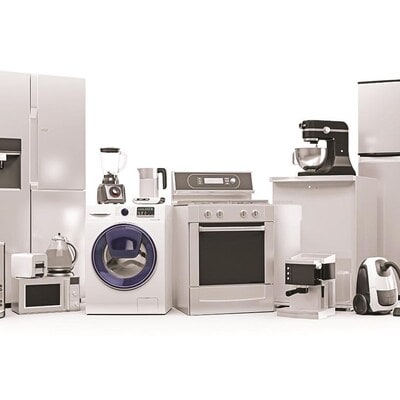[ad_1]
April-June 2024-25 (FY25) was the fifth quarter when India’s import of electronic goods topped $20 billion.
Electronic components and computer hardware accounted for more than half the electronic goods import in the June quarter as against 46 per cent before the pandemic.
Most of the components are used by the mobile phone industry and despite increase in their domestic manufacturing the country is still dependent on high-value imports. This calls for a production-linked incentive (PLI) scheme for components too, according to experts.
Electronic goods worth $22.8 billion were imported in the first quarter this financial year as against $23.4 billion in the previous quarter.
The import bill for such goods has consistently accounted for over a fifth of the import (chart 1).
Electronic goods include computer hardware, consumer electronics, electronic components, electronic instruments, and telecommunications instruments.
Electronic components are used mostly in the assembly of mobile phones in India.
Tarun Pathak, research director, Counterpoint Research, said while 15 per cent of the components by value of an assembled mobile phone were manufactured in India now, the ratio was 3-4 per cent a decade ago.
“We are still dependent on the import of high-value components like chips, display, and camera module because manufacturing these requires investment on a large scale. So we need a similar PLI scheme at the component level so that we can localise that production as well,” he said.
India started the PLI scheme in April 2020 to encourage local manufacturing and investment in the mobile phone segment. The increase in India’s mobile phone export is driven by the rise in domestic assembly. A similar scheme for manufacturing IT hardware came into effect last year.
Pathak added a larger chunk of the sub-components procured locally were from global companies operating in India.
Among the other electronic goods, India imported over $4 billion of telecom equipment and $1.1 billion of consumer electronics in the June quarter of FY25. However, the share of consumer electronics and telecom instruments in the total has declined in the latest quarter to 24 per cent from about 33 per cent in FY19 (chart 2).
“Most of the telecom instruments we import are network-related equipment procured from the likes of Ericsson and Nokia. Of late there has been a lot of focus on domestic manufacturing as well,” said Ankit Jain, vice-president and sector head, corporate ratings, ICRA.
But unless the domestic manufacturers become big enough to service the needs of the larger telcos, the share of domestic manufacturing is likely to remain relatively small, he says.
Electronic goods continued to be the third biggest item in the import bill of India. Moreover, the growth in imports of such goods is second only to the growth in crude oil imports.
Imports of electronic goods grew by 12 per cent in the first quarter of FY25 when compared to the same period last year.
Buoyed by discounted Russian prices, crude petroleum has grown by 22.4 per cent in the June quarter compared to the same quarter last year. While pharmaceutical imports have increased by about 11 per cent in the recent quarter, engineering products have done so by 5.4 per cent. Imports of gems and jewellery have contracted by 0.5 per cent in the same period (chart 3).
First Published: Aug 06 2024 | 8:39 PM IS
[ad_2]
Source link

